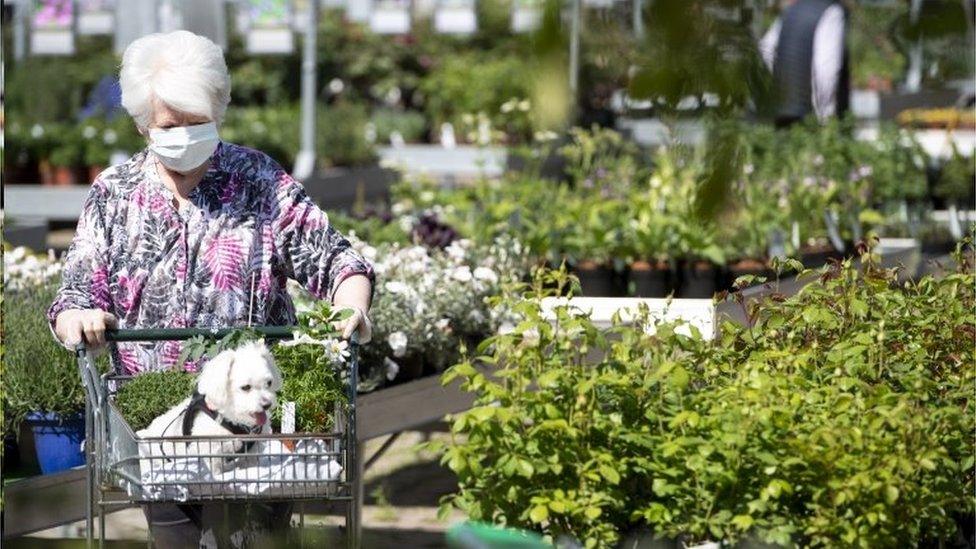Coronavirus: No 'single leap to freedom', minister warns
- Published
"Public transport cannot go back to where it left off" - Transport Secretary Grant Shapps
The government will proceed with "extreme caution" exiting lockdown, the transport secretary said as he revealed plans to "get Britain moving again".
Grant Shapps said the move beyond Covid-19 would be a "gradual progress" and not a "single leap to freedom".
He pledged £250m for improvements to cycling and walking infrastructure but would not confirm a 14-day quarantine for passengers arriving in the UK.
Another 346 UK coronavirus deaths were recorded, taking the total to 31,587.
Mr Shapps, who was speaking a day before the prime minister is due to address the country on lockdown measures, said there had been unprecedented levels of walking and cycling during the pandemic.
He said: "Whilst it's crucial that we stay at home, when the country does get back to work we need to ask those people to carry on cycling or walking and for them to be joined by many others as well."
Even if the UK transport network was running at full capacity, social distancing rules would mean only one in 10 passengers could travel, he said.
Pop-up bike lanes, wider pavements, safer junctions, and cycle and bus-only corridors will be created in England within weeks as part of a £250m emergency fund.
It is the first part a £2bn package for cycling and walking, which was part of a £5bn investment announced in February, the Department for Transport said.

A SIMPLE GUIDE: How do I protect myself?
AVOIDING CONTACT: The rules on self-isolation and exercise
HOPE AND LOSS: Your coronavirus stories
LOOK-UP TOOL: Check cases in your area
FACE MASKS: Should I be wearing one?

The extra funding is for English local authorities to help alter road networks with the aim of taking pressure off roads and public transport network.
Matters concerning cycling and walking are devolved. For example, Wales had legislation in place to boost both activities since 2013, while Scotland announced funding for "active travel infrastructure" in April, external.
The Welsh Government has suggested new policies including road or lane closures with filters for cyclists, 20 mph limits and footway widening.
In Scotland, Michael Matheson, cabinet secretary for transport, infrastructure and connectivity, told the Scottish parliament his government had put forward a package of support to help local authorities implement "temporary active travel measures" to allow people to walk and cycle while physically distancing and keeping safe from traffic.
No specific measures have been announced yet in Northern Ireland although Infrastructure Minister Nichola Mallon is expected to appoint a cycling and walking champion.
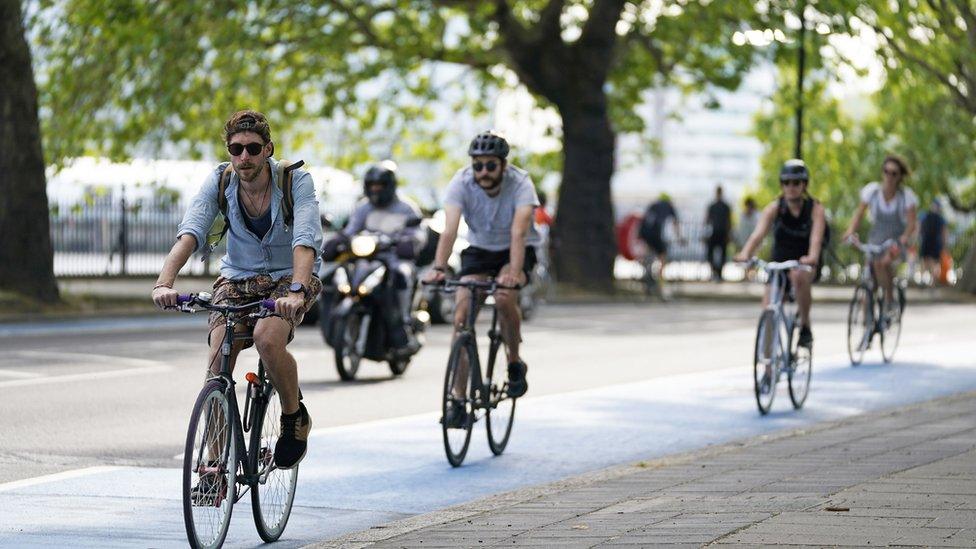
The transport secretary announced an emergency £250m fund for cycling and walking improvements
Asked by the BBC's Ben Wright about reports of 14-day quarantine measures for people entering the country, Mr Shapps said he would not announce anything ahead of Prime Minister Boris Johnson's speech on lockdown measures on Sunday.
But deputy chief medical officer Jonathan Van-Tam said the virus had an incubation period of up to 14 days, during which symptoms develop.
Mr Shapps said: "Bearing in mind the sacrifice the British people have made over seven weeks and counting, you can't have a situation where someone is asked to stay at home but others can come into the country."
The airline industry has raised concerns about the plans with trade body Airlines UK saying the policy needed "a credible exit plan" and should be reviewed weekly.
And a spokesman for Heathrow said any measures must be medically effective, meet public expectations and be deliverable by airports.
Announcing £10m for electric car charging points and extended an e-scooter trial across England, Scotland and Wales, the transport secretary said better air quality had been one of the few benefits of the current crisis.
Mr Shapps was also asked about the apparent rise in people going outside which came after warnings against sending out "mixed messages" with newspaper reports suggesting sunbathing and picnics could be permitted as early as Monday.
He dismissed allegations the government's messaging strategy was confusing, and said "I think that most people are more than capable of understanding what is meant".
Asked about social distancing in schools, particularly for younger children who may not follow the rules, Mr Shapps said: "Extreme caution is actually the watchword on this. And we've seen in other countries where second, not quite spikes have come along, but where social distancing has been relaxed and there've been problems, so we will wait to see."
The government did not hit the 100,000 daily testing target for the seventh day running but there were 96,878 tests delivered in the 24 hours up to 09:00 BST on Friday.
The Local Government Association welcomed the transport announcements but said local councils must have "long-term certainty" around funding.
David Renard, LGA transport spokesman, said: "Local control over infrastructure and public transport budgets would enable them to deliver the widespread improvements to promote more active travel."
Mayor of London Sadiq Khan said funding for walking and cycling schemes was important for people who have to return to work and said enabling people to walk and cycle would be "critical to easing the pressure on our busy public transport network".
RAC head of roads policy Nicholas Lyes said the success of the new walking and cycling schemes would depend on motorists' attitudes to short car journeys, and said if e-scooters were to be used as alternative transport to get around cities, safety must be taken into account.

How have you been affected by the issues relating to coronavirus? Share your experiences by emailing haveyoursay@bbc.co.uk, external.
Please include a contact number if you are willing to speak to a BBC journalist. You can also contact us in the following ways:
WhatsApp: +44 7756 165803
Tweet: @BBC_HaveYourSay, external
Send pictures/video to yourpics@bbc.co.uk, external
Please read our terms & conditions and privacy policy
- Published9 May 2020
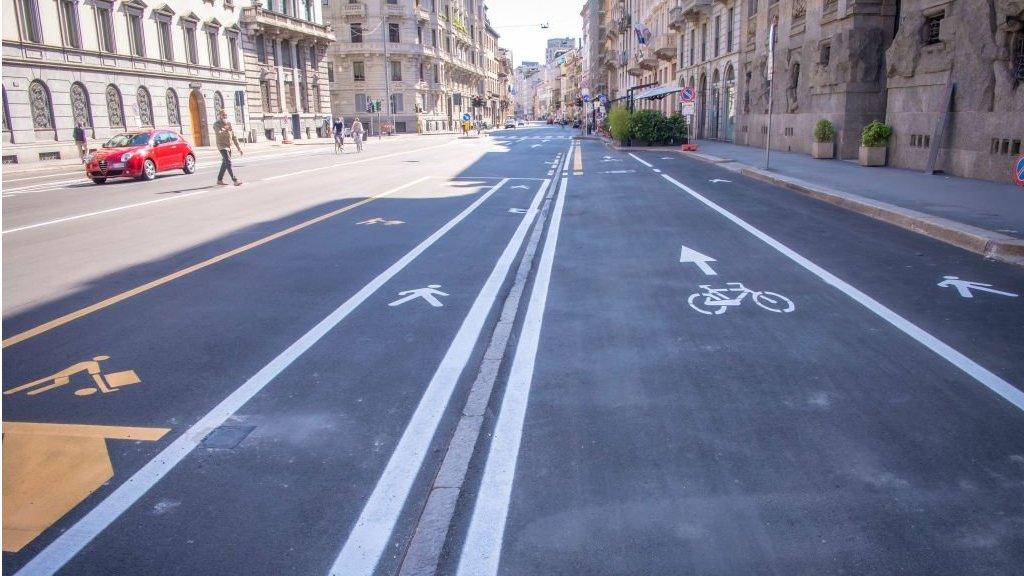
- Published9 May 2020
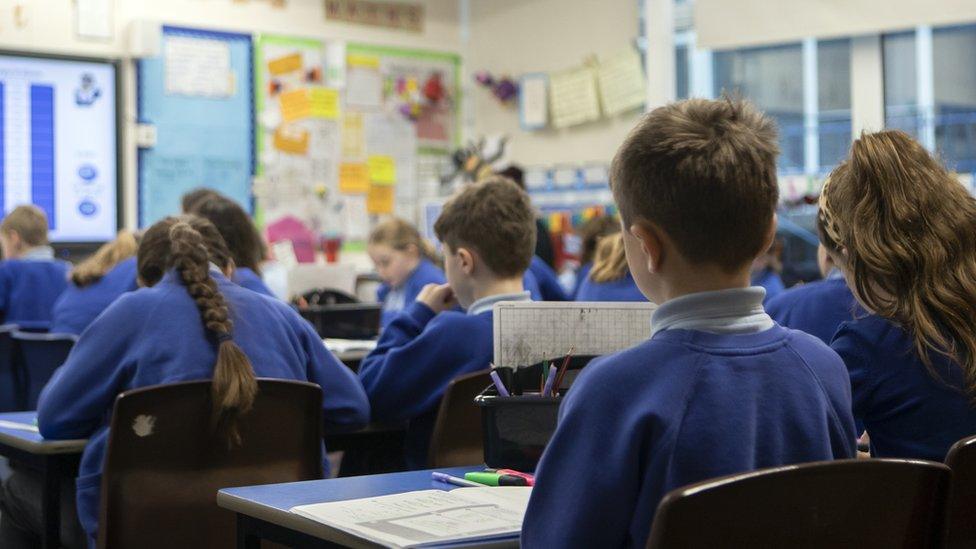
- Published9 May 2020
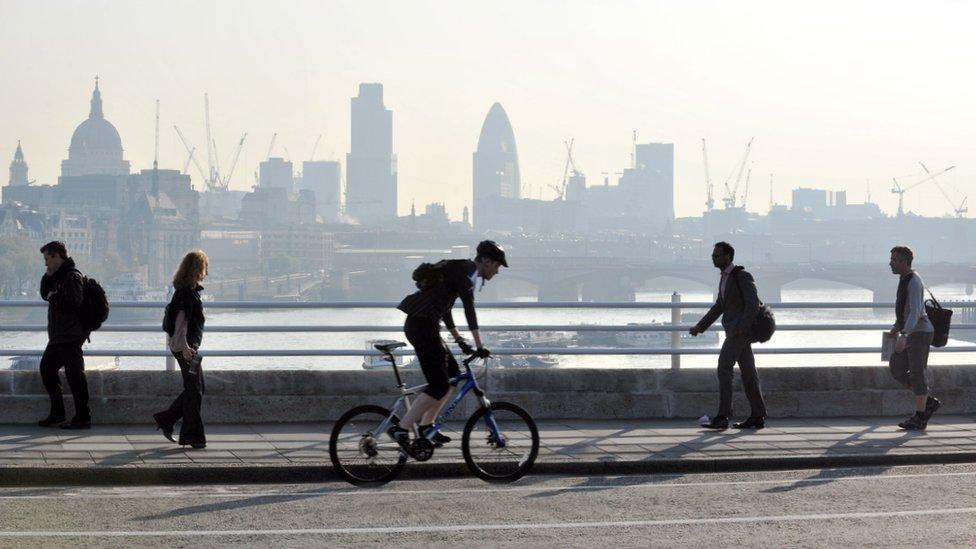
- Published9 May 2020
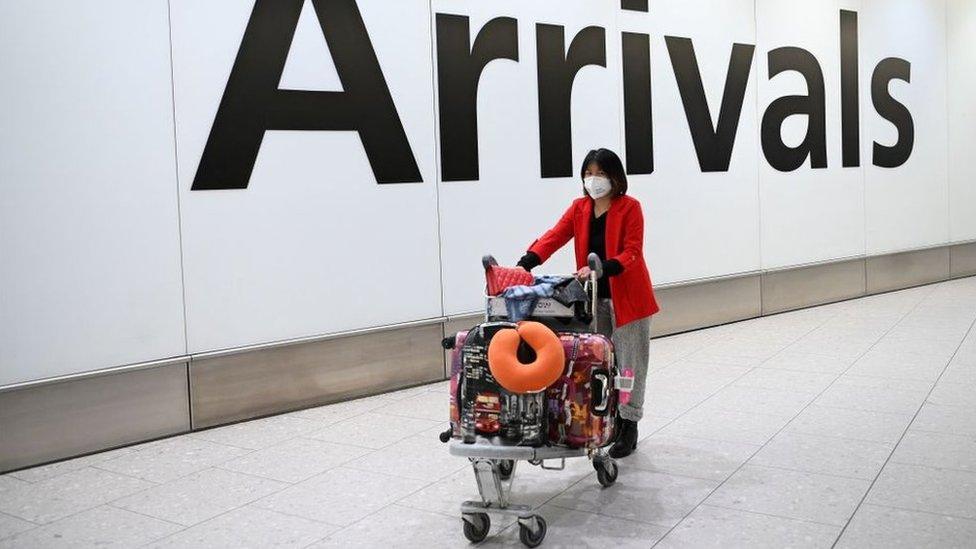
- Published9 May 2020
